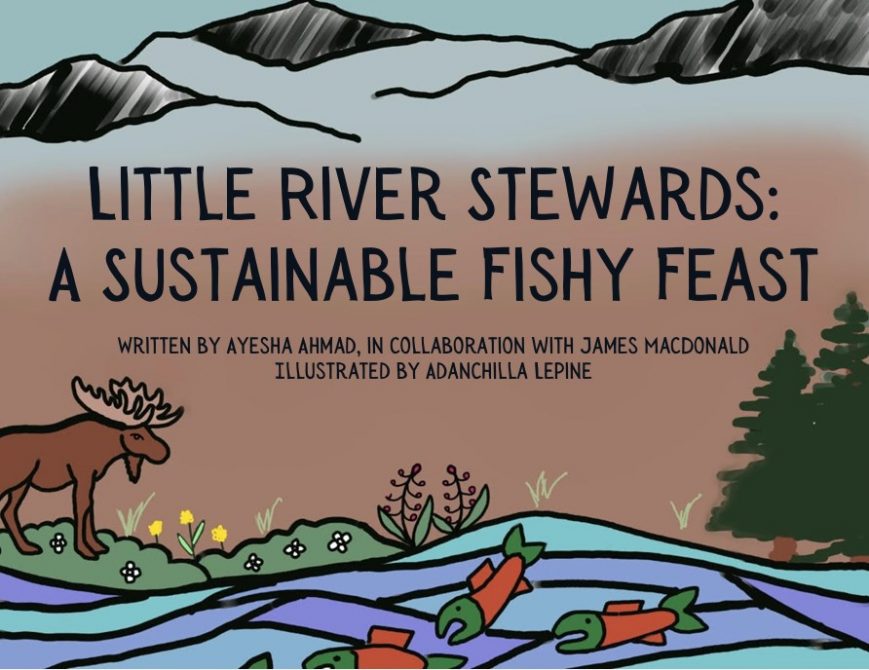Little River Stewards: A Sustainable Fishy Feast

Project Details
The "Little River Stewards: A Sustainable Fishy Feast" project aimed to make a lasting impact on environmental stewardship in the Yukon Territory by strategically introducing a children's book into school curricula. The project's focus on sustainable fish harvest practices was designed to educate and engage young readers, fostering a sense of responsibility towards the environment. Leveraging the cultural relevance of the Yukon's fishing traditions, the project sought to embed the importance of sustainability within the local context. Through the creation and distribution of accessible educational materials, the initiative aimed to influence attitudes and behaviors, with the ultimate goal of shaping a generation that valued and practiced responsible interactions with their natural surroundings.
Project Description
The project, “Little River Stewards: A Sustainable Fishy Feast,” was a strategic initiative aimed at fostering environmental stewardship in the Yukon Territory. Centered on the creation and integration of a children’s book into school curricula, the project sought to educate and engage young readers on the significance of sustainable fish harvest practices. Drawing on the cultural relevance of the Yukon’s fishing traditions, the initiative aimed to embed a sense of responsibility towards the environment within the local context. The project’s methodology involved the development and distribution of accessible educational materials, ensuring inclusivity. By influencing attitudes and behaviors through targeted youth education, the project aspired to contribute to the formation of a generation committed to responsible and sustainable interactions with their natural surroundings.
What was your biggest challenge?
The primary challenges in creating the project “Little River Stewards: A Sustainable Fishy Feast” revolved around developing a children’s book that strikes a balance between educational content and engaging storytelling, ensuring it effectively communicates the complexities of sustainable fish harvest. Another major hurdle involved navigating the intricacies of cultural sensitivity, requiring thorough research and collaboration with local communities in the Yukon Territory to accurately represent their traditions. Additionally, integrating the educational material into school curricula posed challenges in navigating educational systems, gaining support from educators, and aligning with established standards. Overcoming distribution barriers to ensure widespread access in the Yukon region and measuring the project’s impact on raising awareness and influencing behaviors were also key challenges that required careful planning and adaptability throughout the project’s development and implementation.
What was your most valuable takeaway?
The most valuable takeaways from the project “Little River Stewards: A Sustainable Fishy Feast” underscored the importance of collaboration, adaptability, and community engagement. Working closely with local communities and educators was crucial in ensuring cultural relevance and accurate representation. The project highlighted the need for adaptability in addressing challenges throughout content development, educational integration, distribution, and impact assessment, emphasizing the significance of a flexible and responsive approach. Additionally, recognizing the long-term nature of educational initiatives and prioritizing the fostering of lasting values and attitudes in future generations emerged as essential. The project reinforced the importance of establishing robust metrics and assessment methods for measuring impact, contributing to continuous improvement and the overall success and sustainability of initiatives focused on environmental education and cultural preservation.
